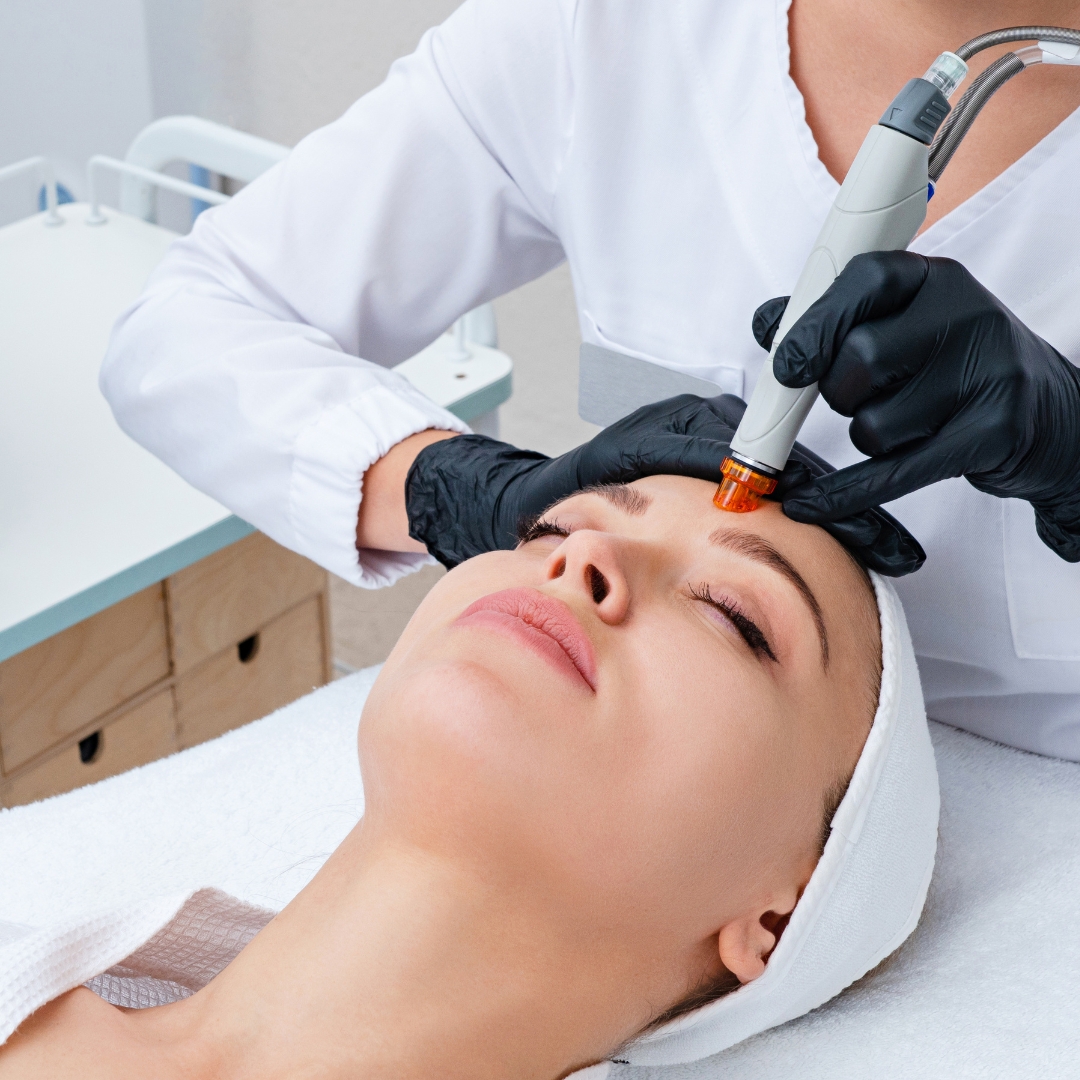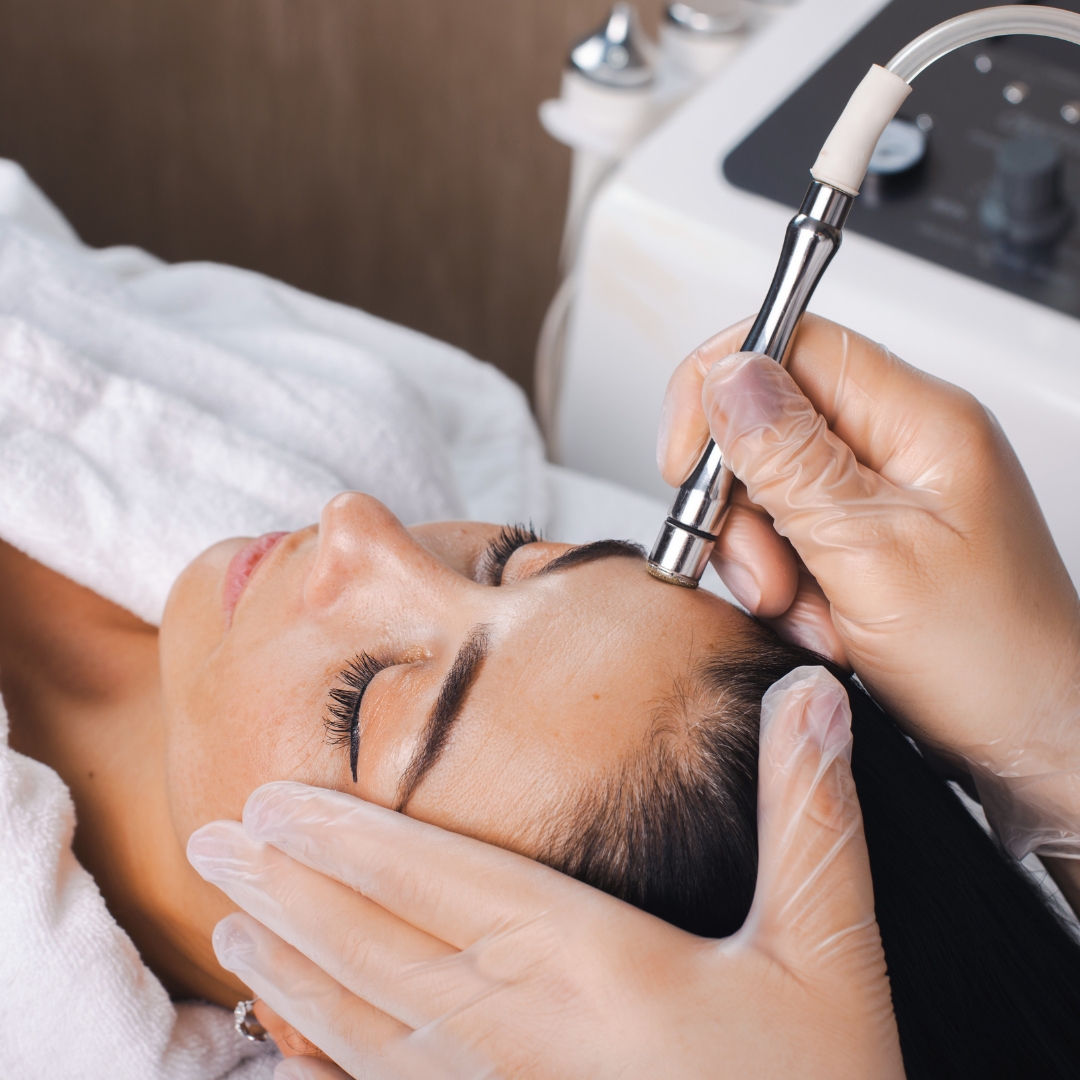Hydrafacial treatments have become increasingly popular for their ability to provide immediate, visible results without the discomfort typically associated with other facial treatments. Known for their hydrating, brightening, and skin-rejuvenating effects, Hydrafacials are designed to address a wide range of skin concerns, from acne to signs of aging. With a perfect blend of gentle exfoliation, deep cleansing, and intense hydration, Hydrafacials are often well-tolerated by many skin types. But is Hydrafacial safe for sensitive skin? Here’s everything you need to know before booking your appointment.
What is Hydrafacial?
Hydrafacial is a non-invasive facial treatment that uses a specialized device to cleanse, exfoliate, extract, and hydrate the skin. The treatment combines the benefits of traditional facials with advanced technology to deliver a deeper level of skincare. It involves the use of serums that target specific skin concerns and a patented vortex suction to remove dead skin cells, debris, and impurities while infusing the skin with nourishing antioxidants, peptides, and hyaluronic acid—all working together to promote a smooth, radiant, and flawless complexion.

Why Sensitive Skin Might Be Concerned
Sensitive skin is prone to irritation, redness, and inflammation. Conditions like rosacea, eczema, and certain types of acne can exacerbate sensitivity, making it more challenging to find suitable skincare treatments. Many people with sensitive skin worry about the potential for adverse reactions from professional facials, as they often involve exfoliation, extraction, or the use of harsh ingredients.
With Hydrafacial, however, the treatment is designed to be gentle and customizable. The HydraFacial device uses a unique spiral tip that gently exfoliates and vacuums away impurities without harsh scrubbing, making it less likely to cause irritation compared to traditional mechanical exfoliation methods.
Why Hydrafacial is Safe for Sensitive Skin
Non-Abrasive Exfoliation: One of the key concerns with facials for sensitive skin is exfoliation. Many exfoliation methods involve abrasive scrubs that can irritate sensitive skin. In contrast, Hydrafacial’s exfoliation process is much gentler. The device uses a mild, non-abrasive technique that exfoliates the skin with a gentle vortex technology, effectively removing dead skin cells without causing redness or irritation.
Customizable Serums: Hydrafacials are highly customizable, allowing practitioners to select different serums based on your skin type and concerns. For sensitive skin, hydrating and soothing ingredients like hyaluronic acid and antioxidants can be used to calm and replenish the skin, ensuring it remains nourished and balanced. Some serums are also specifically formulated to target skin conditions such as rosacea, making Hydrafacial a great choice for those with skin sensitivities.
No Downtime: Unlike some other facial treatments that may cause peeling, redness, or irritation that can last for days, Hydrafacial requires no downtime. The treatment is designed to leave your skin feeling refreshed, glowing, and deeply hydrated immediately after the procedure. This makes it ideal for those with sensitive skin who may experience prolonged redness or recovery time with more invasive treatments.
Gentle Extraction Process: While many facials include extractions, which can sometimes be harsh and lead to post-treatment irritation, Hydrafacial uses a gentle vacuum suction system that can remove impurities from the skin without the discomfort associated with traditional manual extractions. This minimizes the risk of further aggravating sensitive skin.

Things to Consider Before Your Hydrafacial
Though Hydrafacial is generally considered safe for sensitive skin, there are a few things to keep in mind:
Consult a Professional: Before undergoing any facial treatment, it’s important to consult with a skincare professional to ensure the treatment is appropriate for your skin type and concerns. If you have a history of allergic reactions or skin conditions like rosacea, make sure to mention this to your provider.
Avoid Active Irritants: If you have sensitive skin, it’s best to avoid harsh ingredients such as retinoids or strong exfoliants in the days leading up to your Hydrafacial treatment. These ingredients can increase skin sensitivity and may interact poorly with the treatment.
Patch Test: If you're concerned about how your skin will react, ask your provider for a patch test before proceeding with the full treatment. This will help determine if you’re allergic or sensitive to any of the ingredients used in the serums.
Conclusion
Hydrafacial can be a safe and effective treatment for sensitive skin when performed correctly. Its non-abrasive exfoliation, customizable serums, and gentle extraction techniques make it a suitable option for individuals with delicate or reactive skin. Always consult with a qualified skincare professional before undergoing the procedure to ensure it aligns with your skin’s needs. When done properly, Hydrafacial can leave your skin glowing, hydrated, and refreshed—without the irritation.